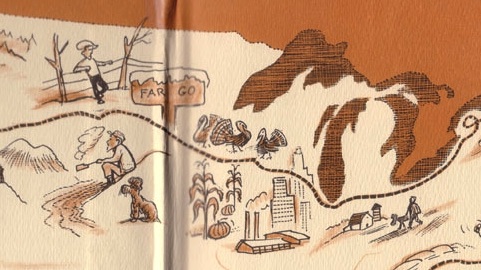Sobremesa: To live a better life, we should eat dinner like the Spanish

- Sobremesa is the Spanish word for the space after dinner when people relax and talk at the table.
- The closest friendships we forge happen during the "down time" we spend with others.
- Here we look at three other ways you can benefit from the sobremesa mindset.
There is nothing so mind-expanding as staying with a different family for a while. It’s only when you spend a decent amount of time around different people, who are doing things differently, that you realize that your way isn’t the only way.
For example, I grew up in a household where eating was largely utilitarian. Our family would gather, we would d have our dinner, and then we would d go back to whatever it was we were doing. We ate to live. It’s not that meal times were held in funereal silence, but my family just saw the dinner table as a place for dinner. But then, I stayed at Clare’s house.
Clare’s family treated meal times very differently. For them, the food was just an excuse to have a very long, relaxed chat. The dinner was, if anything, an irrelevant and movable component. When we finished our food there was no, “Right, who’s washing up?” or “Let’s go watch TV!” Instead, everyone sat back and reclined. Clare’s family was all about the after-dinner. They were there for a good natter and the contented sighs of the full-bellied.
Only now do I realize this has a word: sobremesa.
Table talk
Sobremesa is a Spanish word that represents a Spanish tradition. On the one hand, it’s simply the physical act of staying at the table after your dinner and talking. But, more than that, it’s about committing to those friends and family who are there, making space for those people in your busy day. Sobremesa is a mindset that pushes aside all the other things you “have” to or “need” to do and instead relaxing with those around you.
Those who grew up in a sobremesa tradition will likely find it comical to have it analyzed so much, but sobremesa represents a value system others do not share. Sobremesa signifies the importance of bonding, laughter, and personal connections. It sees “down time” as an essential time, and the dinner table is a great place for this down time to occur.
Sobremesa is a hugely important part of forming a deep and lasting connection with someone. And the bonding that results from it doesn’t strictly have to happen at the dinner table. At school, you see the same faces every day, and life-long friends are forged in the mutual ordeal of chemistry, math, and gym class. At work, you grumble in companionable solidarity with a colleague who is just as tired and jaded as you. Over time, this results in a deep bonding that is characteristic of sobremesa.
Create your own sobremesa
So, if we know that quality down time is important for relationships, how can we make time for it in our ultra-busy world? Here are three practical suggestions.
The road trip. Don’t believe the movies; most road trips are boring. In between the singing and gawping at attractions, there is a lot of nothing. For hours and hours, you will see only tarmac, punctuated by the occasionally interesting car. And that’s a good thing because the reason road trips are fun is that you get to — you have to — talk to the person next to you. A friend of mine will only drive with her family to some distant holiday spot because she says it’s the best bonding opportunity they all get.
Roll your sleeves up. Do a job with someone that cannot be done in an hour — something like painting the rooms in your house or building a deck outside. It could be as mundane as raking leaves or as exciting as digging a fire pit, but when you do something for long enough with someone, you will find that you end up talking a great deal. It might be small talk aimed mostly at distraction, but that’s exactly what we want.
Take a course or a class. When you sign up to learn how to paint or how to speak Japanese, it’s not just you and the teacher; it’s you and a lot of others who are all there in mutual incompetence. If you sign up to take a class with a friend or acquaintance, then you will find that this class deepens your friendship. When you are both fumbling your way around a camera’s settings or staggering through the steps of a salsa, you will find a connection that will last much longer.





